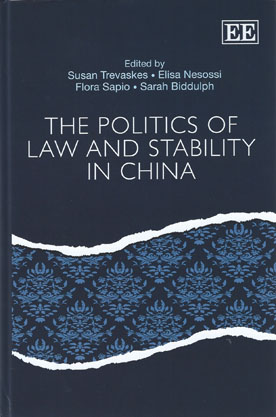We are now closed for the Christmas and New Year period, returning on Monday 5th January 2026. Orders placed during this time will be processed upon our return on 5th January.

The Politics of Law and Stability in China examines the nexus between social stability and the law in contemporary China. It explores the impact of Chinese Communist Party's (CCP) rationales for social stability on legal reforms, criminal justice operations and handling of disputes and social unrest inside and outside China's justice agencies.
The book presents an extensive investigation into the conceptual and empirical approaches by the Party-state to control Chinese citizens and to respond to what it sees as potentially de-stabilising social action such as public protest, discord, deviance and criminal behaviour.
This timely and important study reaches across a broad variety of areas within the legal sphere, including substantive criminal law and criminal procedure law reform, labour law, environment and land disputes, policing and surveillance, and anti-corruption drives. The central thread running through all the chapters concerns how the imperative of social stability has underpinned key Party-state approaches to social management and responses to crime, legal disputes and social unrest across the last decade in China.